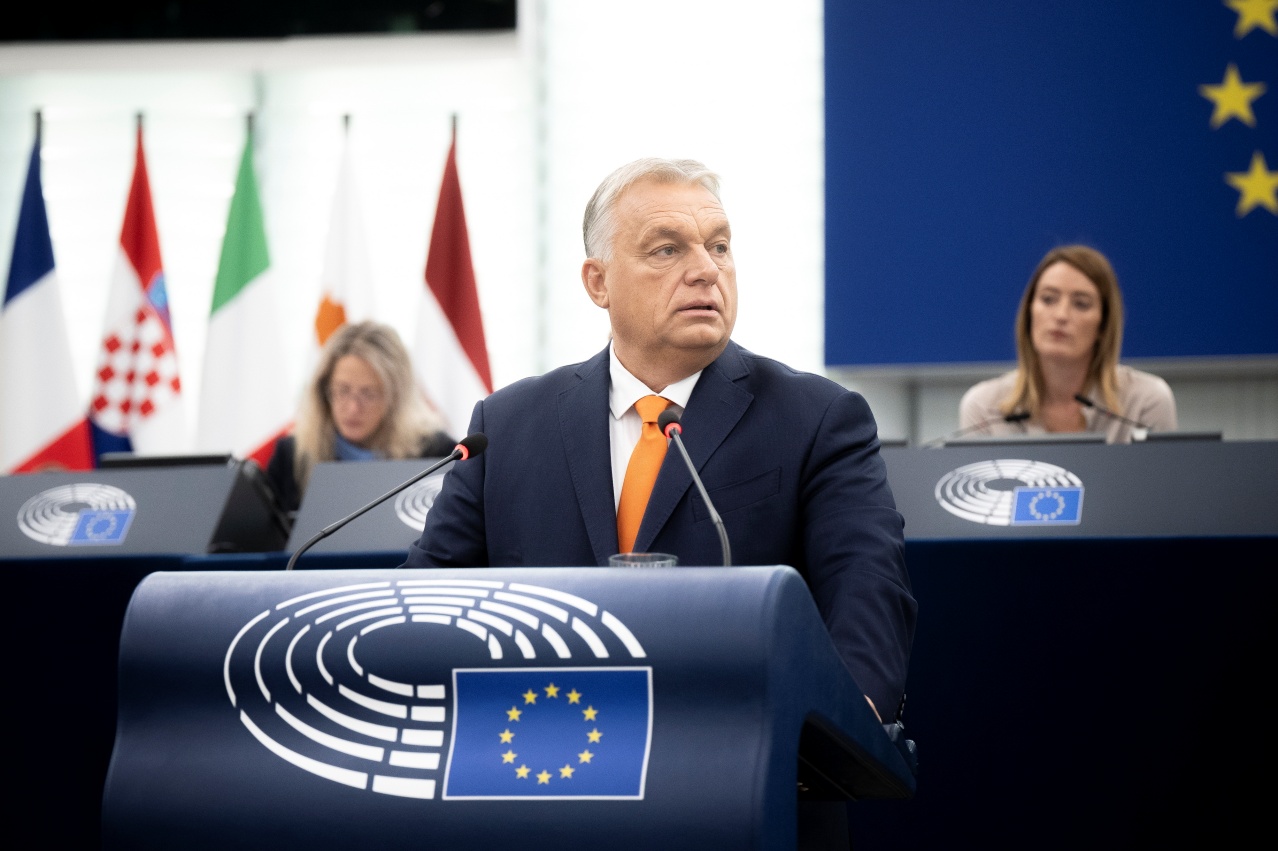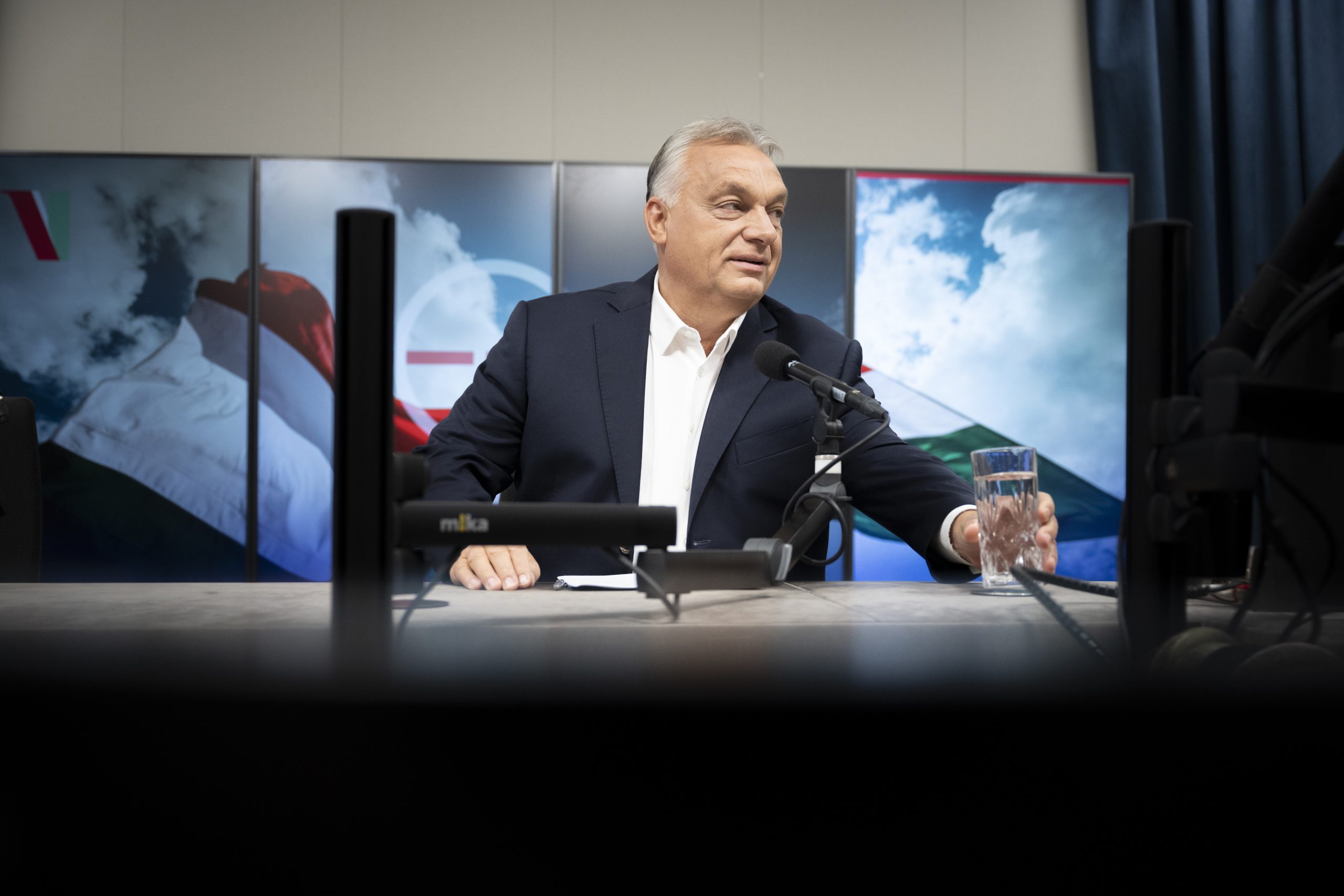
During the plenary debate, progressives accused Hungary of failing to uphold rule of law and democratic values.Continue reading

In a recent interview with Kossuth Radio, Prime Minister Viktor Orbán shared insights on various pressing issues, including Hungary’s economic future, the challenges posed by Brussels, and the impact of migration, reports Magyar Nemzet. He emphasized the importance of national sovereignty and the need for Hungary to chart its own course in the face of external pressures.
Economic Growth and Salary Goals
The Prime Minister stated that achieving economic neutrality could result in a three to six percent growth starting in early 2025. He expressed optimism about ongoing negotiations with trade unions aimed at raising the average salary to one million forints.
We have a well-thought-out program; excellent professional work has been done under the leadership of Minister János Bóka,” he remarked, underscoring the government’s commitment to improving the economic landscape.
Furthermore, he mentioned the completion of the workers’ loan program and the Sándor Demján initiative to support small and medium-sized enterprises.
“We could have had a quality debate on why the European economy is in trouble,” Viktor Orbán said about the plenary meeting in Strasbourg.
Brussels and Its Agenda
During the interview, Orbán criticized Brussels, suggesting that the European Union is more focused on undermining the Hungarian government than addressing its responsibilities. He recalled how Ursula von der Leyen and Manfred Weber openly expressed their intentions to destabilize Hungary’s leadership, stating:
they named the members of a new government… indicating their readiness to comply with Brussels’ demands.”
He cautioned that a Dobrev-Magyar (Democratic Coalition-TISZA Party) government would engage in the war in Ukraine, permit mass migration, abolish family protection laws, and participate in the economic cold war.
Migration Issues and Security Concerns
The Prime Minister highlighted the increasing threat of terrorism and public safety issues linked to migration. “A turning point has been reached,” he noted, referring to shifting attitudes toward migration across Europe.
He advocated for a governmental approach to migration management, proposing that decisions on this matter should be made by prime ministers involved in the Schengen-system, rather than by the European Commission.
“Migration is a matter for governments,” he affirmed, emphasizing the need for a unified response to protect Hungary’s borders.
The Road Ahead for Hungary
As the conversation shifted back to the Hungarian economy, Mr. Orbán outlined his plans for growth and stability. He remarked, “we have put together an action plan to give Hungary a new impetus,” indicating a strong belief in Hungary’s potential for economic recovery. He also reassured listeners that the major automotive manufacturers would remain in Hungary, stating, “we are two or three steps ahead of the world.”
He expressed confidence that the Hungarian economy would see positive changes, particularly in car production, by the second half of next year.
Orbán’s interview shed light on Hungary’s path forward amid external challenges. He underscored the government’s commitment to economic growth and the importance of preserving national sovereignty in the face of EU pressures. The PM’s remarks reflect a determination to navigate Hungary’s future independently, ensuring that the voice of the Hungarian people remains central to decisions impacting their lives.
Via Magyar Nemzet; Featured Image: MTI/ Miniszterelnöki Sajtóiroda / Benko Vivien Cher